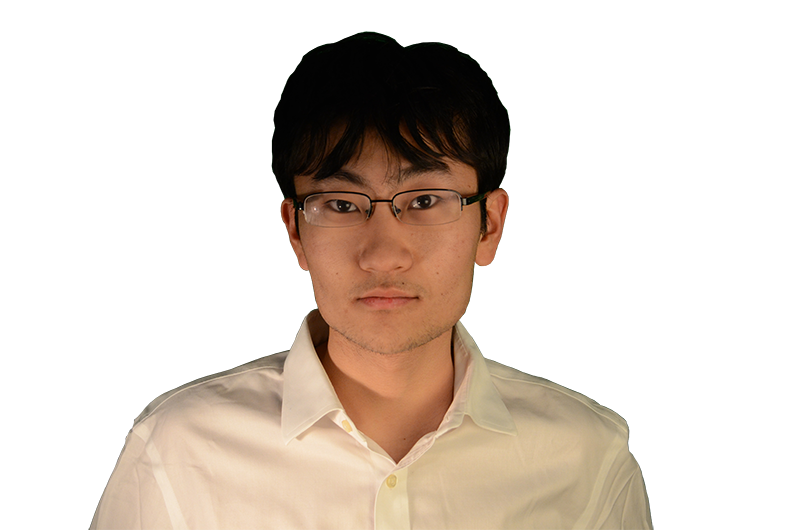Cui: The deeper reason behind our nasty dialogue
April 29, 2014
Let me begin by describing a society split among 10 groups, each with its own language and its own social norms. Some groups in this society are destined for greater opportunity; others must deal with the uncertainty of being part of an undervalued caste. There is a lot of mingling among groups, but in general, members of each cluster with their own. As resentment mounts, dissidents on the society’s fringes band together to force societal change. They will use radical methods to have others recognize their identities.
Wondering what that has to do with campus dialogue, you may think I am obliquely trying to reference Northwestern, with its multiple schools and recent activist campaigns. Yes, but not exactly: The society is early 20th-century Austria-Hungary and the dissident part of the Serbian Black Hand, whose assassination of Franz Ferdinand led to the empire’s demise.
The point is not to compare student activists with nationalist terrorists. The point is to highlight a certain oddness of NU life, on par with empires that history courses tell us were doomed to fail due to “ethnic conflict.” By that logic, NU has its share of ethnic conflict as well. In this light, any solution to our campus’s social problems will fall short of the ideal.
For example, this oddness drives what can only be called nastiness in campus dialogue. Time and time again, a group will call for a change of stance on an issue — from mental health to Greek life to social justice — and another group will argue the initial call demanded too much or not enough. Some students will claim the nastiness can be avoided only if members of different groups communicated with each other. But, after three years of hearing these claims, I have seen no dialogue stick in the student body’s consciousness for even a month after a group’s publicity campaign. There has to be a theory for why the talking never starts.
Observation has led me to conclude that social groups adopt their own vocabulary and norms — from “Medilldo” to “oppression,” Rush Week to group selfies — on top of institutionalizing their communities through founding student organizations. Identities become intertwined in these norms and organizations, such that an attack on any of them seems like an attack on the people themselves. There is a degree of irony here: We choose to adopt a certain vocabulary or join a student group only to feel personally threatened when others attack those customs. Instead of using institutions to form bonds, the institutions bind us in chains.
Yet incoming students, year after year, continue to bind themselves. Perhaps it is a defense mechanism of sorts; we let ourselves be bound because doing otherwise would subject us to uncertainty. This includes uncertainty about how one’s social group is valued on campus, as well as uncertainty about life prospects after college. Even if the group is not marginalized by others, the fear still remains.
With this in mind, I hurt when people around me call those demanding for change “stupid” or say their tactics are incomprehensible. Likewise, I hurt when activist friends mock those who oppose them, accusing them of complicity in some form of oppression. These judgments assume something about the free behavior of individuals, or microsociological behavior. What is forgotten is how social structures work to change the way we behave — the macrosociological view.
This subtle difference must be mentioned because it affects what should be blamed for the impasse. If you believe your subjects of ridicule chose to act that way, they should be punished for that decision. Under my view, where the way people act is due to social structures that shape their thoughts, the structure is to blame.
I once thought both types of reasons were equally likely but now believe structural problems are more important. For one, activists over a controversial topic are likely to have met with campus administrators on the topic. However, once faced with how slowly the administration processes their cause, they see public awareness as the best way to force the campus community’s hand. They must be more aggressive to yield maximum publicity. For another, the increasing costs of universities increases the risks of attending college. Uncertainty is a greater danger when we put more on the line, and we want more protection from it. These two mechanisms serve as feedback loops: They push us further from dialogue and only make us more incensed if others question our purpose. These structural problems are why dialogue here is especially nasty and a reason why it will only get nastier.
This column, admittedly, has until now been highly theoretical. Nonetheless, I needed the theory to make my point: Because the problem at hand is a problem of structure, the solution requires more than simply paying extra attention to others. If you do so, you will still judge and will not be able to help yourself. Before dialogue can work, we need to minimize uncertainty about how much this campus values one another. We are not at the point where we can have faith in “listening” alone.
Tom Cui is a Weinberg junior. He can be reached at [email protected]. If you would like to respond publicly to this column, send a Letter to the Editor to [email protected].


